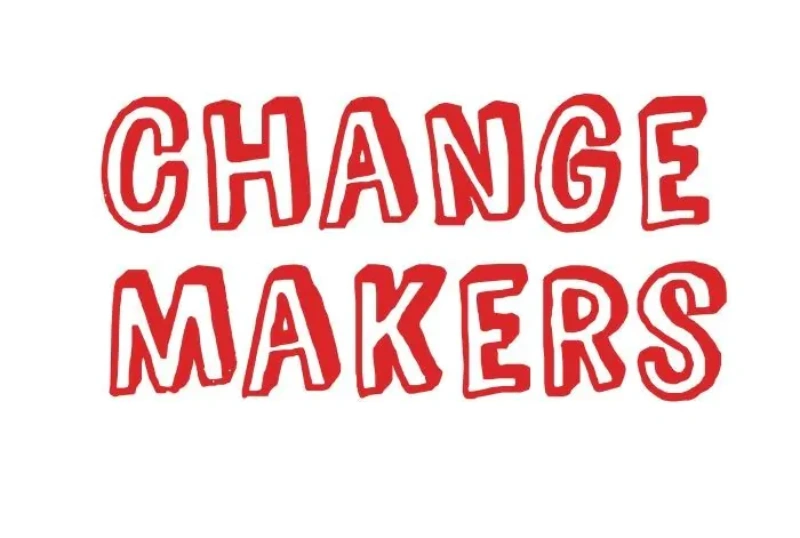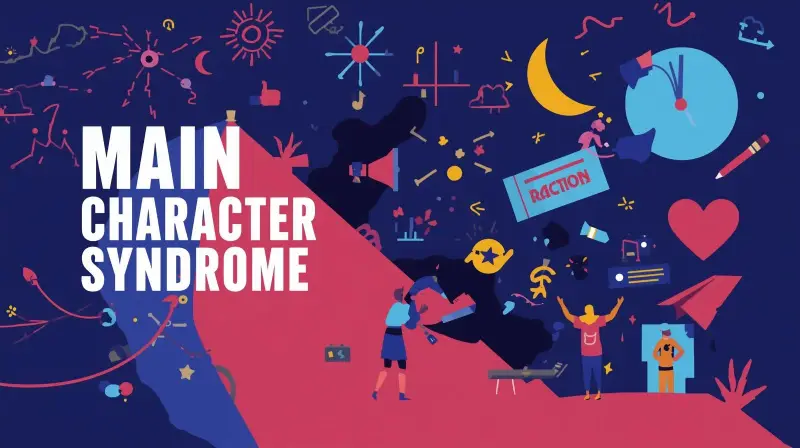Every single one of us out here has an ocean of potential that is still untapped. The spark propels us to success, generates, and enables us to live a life filled with significance. However, the dilemma is that fear, self-doubt, and limiting beliefs mainly cover up the fire spark.
This is where the path of realizing your potential begins: a road map to personal empowerment in which you find your genuine abilities, overcome obstacles and create a course for a life that excites and inspires you.
Understanding Potential: What Does It Mean to Unleash Yourself?

Fulfilling potential doesn’t mean following predefined success models. It is about figuring out what is meaningful for you, strengthening your talents, discovering your true potential, and pushing your boundaries so that you can realize the goal you find truly fulfilling. It is a journey to self-improvement, development, and enrichment, where the fun lies.
Here are some critical aspects of unleashing your potential:
Finding Your Values and Passions: What Motivates You? What pursuits make you happy and fulfilled? Living a purposeful and satisfying life requires knowing your passions and fundamental principles.
Recognizing Your Strengths: Every one of us has unique skills and aptitudes. Acknowledging your advantages enables you to take full advantage of them and pursue projects where you shine.
Acknowledging Your Weaknesses: No one is flawless. Recognize your areas for improvement and develop plans to fix them. Accepting your shortcomings is the first step toward developing yourself.
Setting Ambitious Yet Achievable Goals: Push yourself to develop lofty goals that stretch your talents. Striving for outstanding accomplishments pushes you out of your comfort zone and promotes growth.
Develop a Growth Mindset: Believe in your capacity to grow and adapt. Accept problems as chances for progress and see defeats as valuable lessons rather than roadblocks to achievement.
Roadmap to Empowerment: Practical Steps for Unleashing Your Potential

Your path to achieving your full potential is unique, but the following feasible steps could aid you in getting started:
Self-Reflection: Give Inventory Some Thought. Set aside time to reflect. Examine your values, aspirations, interests, and emotions. Put them in writing, make a vision board, and picture the life you want to lead.
Identify Your Limiting Beliefs: We all have those limiting beliefs—those nagging negative thoughts that always throw us down. They might be self-doubt, fear of failure, or a lack of self-worth. Decide which are yours, and then refute them with proof.
Adopt Lifelong Learning: The world is a whole of knowledge that only needs to be discovered. Take courses, read certain books, attend workshops – continuously devote your time to personal and professional growth.
Get Outside Your Comfort Zone: Set a goal for yourself to try the unknown, even if you feel nervous about it. This includes starting a new activity, taking a public speaking course, or traveling elsewhere. Realizations take place beyond the walls of your comfort zone.
Create a Support Network: Surround yourself with upbeat, encouraging people who think well of you and push you to realize your most significant potential.
Celebrate Your Success: Acknowledge and celebrate your progress, no matter how tiny. This will maintain your motivation and encourage constructive behavior.
Common Roadblocks on the Path to Empowerment

Empowerment is only sometimes a straightforward journey. The following are typical roadblocks you may run into:
Fear of Failure: This is a significant barrier that can arise. Recall that failure is frequently necessary to accomplish your objectives rather than the complete reverse of success.
Procrastination: Putting off tasks can keep you from making progress. Create solutions for time management and procrastination.
Self-doubt: Do not let negative self-talk keep you back. Challenge your limiting beliefs and concentrate on your talents and achievements.
Absence of Motivation: Motivation might diminish at times. Re-establish your objectives, look to others for inspiration, and treat yourself when you accomplish significant tasks.
Comparison Trap: Feeling inferior to other people makes you unhappy. Pay attention to your path and acknowledge your successes.
Examples of Unleashed Potential in Real-Life

Many stories exist of people who overcame obstacles and realized their most significant potential. Here are a few instances:
J.K. Rowling: J.K. Rowling faced rejection by many publishers. Despite this, she persevered and wrote the famous Harry Potter series. This shows that having faith in one’s abilities can lead to remarkable achievements.
Stephen Hawking: He was one of the most learned physicists despite being diagnosed with ALS at a younger age. He motivated us by overcoming hardship and showing the strength of the human spirit.
Oprah Winfrey: Her life story, from a misty childhood to becoming a world-famous media tycoon and charitable, is a worthy example of how effort and extreme hardship can triumph.
Malala Yousafzai: An adolescent Pakistani whom the Taliban shot for her activism for a generation of educated girls. In any manner, the nightmare situation did not concern Malala, who even dared to compete and become the youngest Nobel Peace Prize winner.
Nick Vujicic: Suffering from then urea-amelia syndrome (limblessness), Nick could simply have given up on depression. On the contrary, he fervently took this as motivation to be a motivational speaker, showing how he overcame his hindrances to inspire the myriads of others.
Arunima Sinha: The first Indian amputee to climb Mount Everest, Arunima Sinha became one of the most daring women in sports. Paralyzed after a train accident, Arunima did not spend even a single minute on the problem of her disability. She started a journey full of indescribable challenges and was proud of herself when she accomplished all of them.
Howard Schultz: About two years ago, when he was in his late 20s, he abandoned a third attempt at higher education and joined the coffee-making business. Today, Starbucks is a global coffee giant, proof of an inner force and dedication to life wherever the road does not seem as usual.
J.K. Simmons: At fifty, J.K. Simmons already had commercials and stage theatres. All that hard work paid off after nineteen years when he got an Academy Award for his role in Whiplash. Through the story, he underscores the abovementioned issues that are otherwise hidden at first glance but may nevertheless toughly test us and can appear at any stage.
Colonel Sanders: The founder of KFC proved that age is just a number and that there is always time to follow your aspirations when he launched his fried chicken company at age 65.
The list is endless, and these are only a few instances. The most important lesson is that there are various ways to realize your full potential. It’s about rising above obstacles, beating expectations, and achieving something extraordinary—whether in your own life or worldwide. Allow these tales to motivate you to discover your route to self-determination.
Making a Lasting Difference

Realizing your full potential requires more than personal fulfillment. By using your abilities and interests, you can positively influence the environment in which you live.
Here are a few strategies for using your empowered self to bring about change:
Pursue a Cause You Care About

Identify Your Values: First, prioritize values crucial to you, such as staying environmentally safe or providing social justice.
Find Your Niche: An excellent way to begin is to get to the heart of the issue by letting yourself explore the specific things that fascinate you (fundraising or advocacy).
Volunteer Your Time: Supporting local charities by offering help with their projects on a volunteer basis, such as animal care or food-related services.
Offer Your Resources: Besides giving surplus resources or skills, like photography, for free, commit your effort to the cause.
Become a Mentor

Give Away Your Expertise: Consider your background and areas of competence. Your thoughts can be helpful to others in a variety of contexts, including work, personal life, and hobbies.
Participate in Mentorship Programs: Seek for programs or organizations that match mentees with mentors. This systematic approach can offer valuable direction and assistance.
Informal Mentoring: Formal mentoring is not necessary for mentoring. Give advice and support to friends, coworkers, or family members who might use your counsel.
Be a Listener: Often, being there to listen is the most beneficial assistance you can provide. Establish a secure area where people can talk about their aspirations and problems and lend sympathetic advice.
Embrace Social Entrepreneurship

Passionate Problem-Solving: Use your entrepreneurial skills to tackle social or environmental issues. Social entrepreneurship solves problems like poverty or education disparities while running a business.
Identify Unmet Needs: Look for gaps in social or environmental causes you’re passionate about. Can you develop a product or service that addresses these needs sustainably?
Balancing Profit with Impact: Social enterprises prioritize creating positive change over profits. While profitability is necessary, the main goal is reinvesting earnings into furthering the organization’s mission.
Be a Changemaker in Your Community

Take Part in Local Projects: Get involved in neighborhood clean-ups, youth events, or community gardening. Your assistance can have a significant impact on your neighborhood.
Promote Change: Make your voice heard on matters that concern your neighborhood. To change things, send letters to the local government, organize petitions, or think about running for office.
Motivate Others: Encourage others by sharing your triumphs and experiences. Setting a good example for others to follow inspires others to join you in improving your community.
Conclusion
Remember, empowerment is a journey, not a destination. It’s a continuous process of growth, learning, and pushing your boundaries. Embrace the challenges, celebrate the victories, and never stop striving to become the best version of yourself.
Following these steps and drawing inspiration from others can unleash your potential and create a fulfilling and impactful life. The planet needs your unique talents and perspectives. Step forward, embrace your power, and make a difference!




